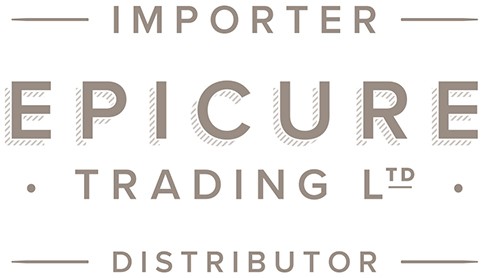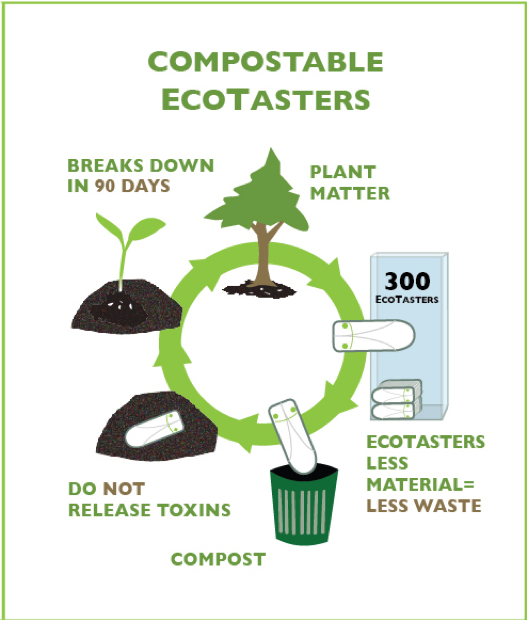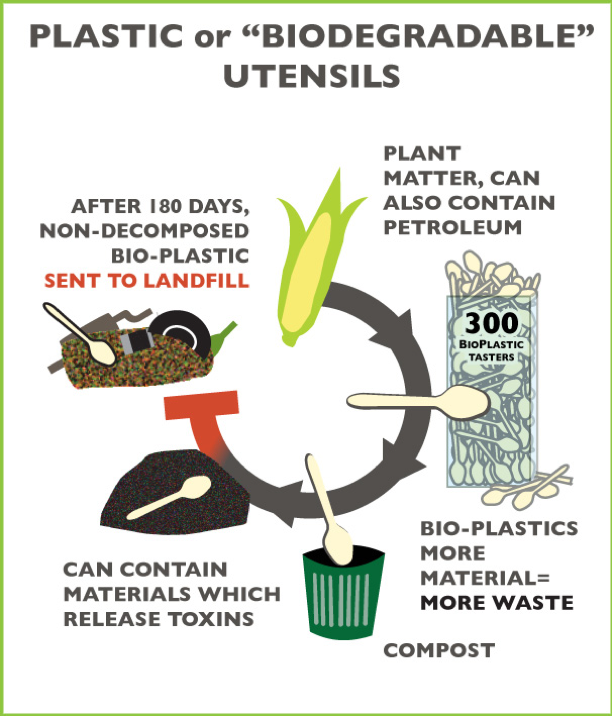
Sustainability Policy
Earth to Earth
When Epicure Trading started in 2003 with the Green Bean Collection of sustainable wooden single-use products it was to ensure there were eco-friendly products available in a world where plastic was king.
Our policy since then has remained the same – we call it Earth to Earth, meaning that all single use items we import and sell must be able to compost naturally – without the need to find their way to commercial facilities.
Even though each of our Brands are made from different materials, no resins, no bleaches or dyes are used. Across the range there are just two items which have any plastic or bio-plastic components or coatings. However these are recyclable.
Where glue is used this is non-toxic food-safe FDA approved PVA (Polyvinyl Acetate or white glue). PVA is biodegradable.
WASARA and NATURAL TABLEWARE
Sugar cane is a fast growing renewable resource. Bagasse is the fibre left behind after sugarcane is pressed for its juice. Where once it used to be burned, it is now made into a soft paper. It is then mixed with water and some bamboo fibre to make a pulp which is heat moulded into the various shaped plates, bowls and cups that we offer.
No bleaches dyes or resins are used but the product is remarkably durable and can be used for hot or cold food and liquids.
WASARA is naturally compostable. Once used it can be placed, along with any food scraps into a home compost where it will begin to break down with hours.
*The definition of compostability under ASTM-D6400 certification obtained by WASARA states that the material will: 1) decompose into carbon dioxide, water, and inorganic compounds; 2) undergo extensive decomposition, losing its original form within 90 days; and 3) leave behind no toxic materials.
If it ends up in the landfill it will take longer to break down but will do so cleanly.
And most importantly if it finds its way into the waterways or ocean it will disintegrate completely.
GREEN BEAN WOODEN SINGLE-USE TABLEWARE
This range is made from a variety of fast growing renewable woods or bamboo.
All the woods used for Green Bean are FSC certified. Bamboo is a fast growing renewable resource.
Wood is of course bio-degradable and naturally compostable, although it takes a while to break down, just like sticks or branches.
GREEN BEAN 3-PLY PAPER STRAWS
3-ply means they will not break down in your drink but they will break down quickly in a domestic or commercial compost.
If they should find their way in to our waterways, they will break down quickly and completely without harming any marine life.
Made from FSC paper
Inks and Glues are non-toxic and have SGS certification
Verterra
Sourced from leftover wood from a renewable tree (Falcataria moluccana) that produces a soft balsa type of wood. The wood is then wrapped in rice paper. The Verterra range is biodegradable and a USDA Certified Bio-Based product.
Two products in this range have window lids. This material is OPP (orientated polypropylene) – a recyclable plastic. We encourage users to separate this from the wood before disposal. Verterra are working to replace this with a compostable plastic.
About USDA Certified Bio-Based product:
US Dept. of Agriculture certification for products derived from plants and other renewable agricultural, marine, and forestry materials. Biobased products provide an alternative to conventional petroleum derived products.
ecotensil
EcoTaster – with green dots EcoMini and EcoMid
This is paperboard with a mineral based coating which is ASTM D6868 compliant for compostability and recyclability. They have FSC /FSI certification
About ASTM D6868 certification
this is designed to test materials, products, and packaging that consist of a biodegradable plastic film or coating attached to a compostable substrate; the entire product is intended to be composted in an aerobic composting facility.
EcoTasters break down completely in a home compost within 3-4 weeks. They are also fully repulpable and produce high quality recycled fibre.
In a landfill EcoTasters use ¼ the amount of space versus plastic utensils.

EcoiScoop – with blue Dot
This is a longer lasting utensil and the only item in our collection that is not truly sustainable. It is made from SFI paper board with a coating similar to a coffee cup or milk carton.
However on the plus side these use ¼ the material of comparable plastic or bioplastic utensils and are recyclable and compostable at facilities where paper cups or milk cartons are accepted.
FSC
Forest Stewardship Council certification is the most stringent and respected level of sustainable forestry. A broad range of stakeholders, including environmental groups and forest products representatives developed FSC standards.
FSC requirements are:
- Biodiversity, endangered species, ancient stands are protected
- Watersheds are protected
- Stands are not to be cleared faster than they can regenerate. Prohibit clear cutting and conversion to plantations
- Prohibit use of GMOs
- Do not allow use of persistent and/or bio accumulative pesticides • FSC’s audit results are public
SFI Certification
SFI (Sustainable Forest Initiative) has strict standards requiring minimal use of chemicals, protection of watersheds, conservation of biodiversity and reduction of clear-cutting.
A WORD ABOUT PLASTICS:
Plastic and Bioplastic Lifecycle
Plastics:
Plastics have an undeniable role in today’s world. But we need to consider the fact that dense plastic utensils are being used for a few seconds and remaining on this planet for potentially thousands of years.

- The lifecycle of traditional plastics begins with potentially harmful extraction of non-renewable oil, refining, and transcontinental shipping.
- Plastic’s end of life is not going to happen in our lifetime, or in our children’s, children’s, children’s life- time.
- Discarded plastic finds its way into waterways, creating significant, long-term harm to marine life. 32 million tons of plastic accumulates in U.S. landfills every year and that number will increase according to the EPA (Environmental Protection Authority).
- 13-16% of landfill is plastic, up from 1% in 1960. Plastic accounts for 50-80% of the waste found on beaches & in oceans.
It is estimated that it will take 450 years for a plastic bottle to decompose in the ocean and over 1,000 years in landfill.
bioplastics
The bioplastics industry has made admirable efforts to reduce dependence on non-renewable resources. Still, there are many issues that have come to light about bioplastics.
- Pesticides and high energy use is needed in growing and converting the plant matter feedstock to polymer.
- Because a utensil is made from plant matter, or claims to be “biodegradable,” does not mean it is compostable. If a utensil is not naturally compostable — it is more than likely to end up in landfill.
- Frequently the plant matter used, such as corn or potato, is genetically modified.
- While bioplastics are compostable in industrial facilities, 90% of the dense bioplastic utensils do not breakdown in the requisite 180 days and therefore becomes landfill.
- Compost facilities cannot tell the difference between plastics and bioplastic utensils, so the vast majority of bioplastics end up in land- fill alongside the plastic utensils they were intended to replace.
With thanks to EcoTensil USA for this information